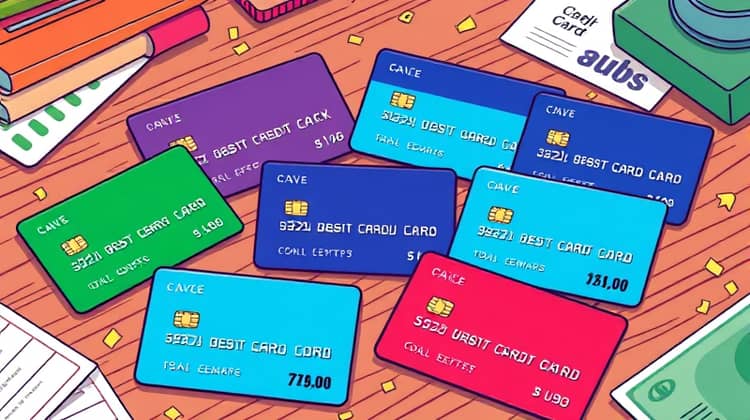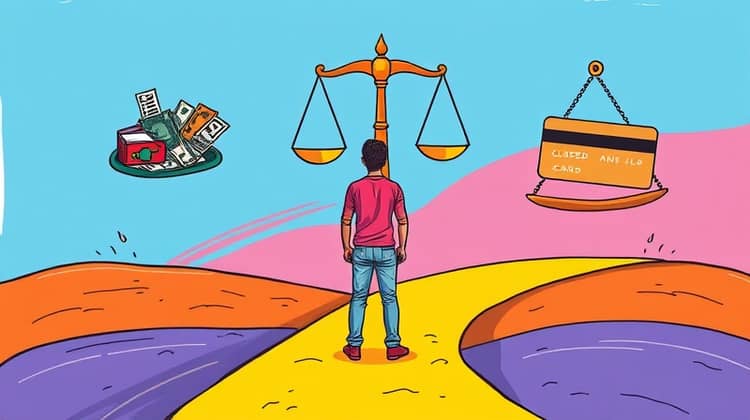Credit Card Myths Busted: Truths Every Cardholder Should Know

Credit cards are a common component in managing personal finances, yet many myths surrounded their use contribute to misunderstandings and mismanagement. As we navigate through the complexities of credit scores, interest rates, and financial strategy, it's imperative for cardholders to distinguish fact from fiction. Knowing the reality behind credit card myths can empower responsible use and help people make informed financial decisions.
In this article, we will debunk some of the most prevalent credit card myths, providing insights and truths that every cardholder should be aware of. By demystifying these myths, we aim to enable better financial habits and enhance your credit score effectively.
Myth 1: Carrying a Balance Improves Your Credit Score

A common misconception among credit card users is that carrying a balance from month to month can enhance their credit scores. This myth is perpetuated by the belief that having activity on a credit card and showing a payment history is enough to keep one's score healthy.
In reality, credit scores are primarily affected by how much of your available credit you are utilizing. High credit utilization can actually harm your score. It’s ideal to aim for a utilization rate below 30%, and paying off your balance in full every month is a responsible financial habit.
- Paying off your balance in full avoids interest charges.
- High utilization impacts your credit score negatively.
- You can build a positive credit history without carrying a balance.
Ultimately, the goal should be to use your credit responsibly, which includes not incurring interest by carrying a balance.
Myth 2: You Should Avoid Credit Cards Altogether

Another prevalent myth is that avoiding credit cards entirely is the best strategy for financial health. Many people believe that not using credit cards is synonymous with being debt-free and financially stable.
While it is crucial to manage credit wisely, completely avoiding credit cards can also lead to a lack of credit history. A healthy credit profile often requires a mix of credit types, including revolving credit like credit cards.
- Credit cards can help build a positive credit history.
- Using credit wisely can provide rewards and benefits.
- Having a credit card can offer financial security in emergencies.
In moderation and with a responsible approach, credit cards can enhance your financial portfolio rather than detract from it.
Myth 3: Credit Cards Are Only for Emergencies

Some believe that credit cards should solely be reserved for emergencies, assuming they should only be used in dire situations. This mindset can lead to missing opportunities for everyday savings and rewards.
Using a credit card for regular purchases and paying it off monthly can yield significant benefits, such as cash-back rewards, travel points, and various other perks.
- Using credit cards regularly can improve your credit score.
- Take advantage of rewards programs.
- Stay within your budget to avoid debt.
Therefore, using your credit card as a tool for daily finances, as long as you manage it properly, can boost your financial situation rather than inhibit it.
Myth 4: All Credit Cards Are the Same

Not all credit cards are created equal, yet many people assume that they function similarly. Many don’t realize the differences in terms, fees, rewards, and interest rates among various types of credit cards.
Choosing the right credit card involves looking at factors like rewards programs, annual fees, and interest rates, which can vary dramatically depending on the card type.
- Some cards offer cash back on purchases, while others provide travel rewards.
- Interest rates can differ widely among credit cards.
- Certain cards come with no annual fee while others do.
Understanding these differences is essential for selecting a card that aligns with your financial goals and spending habits.
Myth 5: Closing a Credit Card Will Always Hurt Your Score

Many individuals believe that closing a credit card will inevitably result in a drop in their credit score, making them reluctant to part with old cards. While it is true that closing an account can influence your score, the impact is conditional.
Factors such as your overall credit utilization, length of credit history, and payment history affect this outcome. In some instances, it may actually be beneficial to close an unused card, especially if it comes with high fees.
- Utilization ratio could improve by closing unused cards.
- Removing old accounts can help simplify finances.
- If you have multiple cards, closing one might not severely affect your score.
Therefore, the decision to close a credit card should be carefully considered, weighing the potential impacts on your credit score against the benefits of reduced financial complexity.
Myth 6: You’re Not Liable for Any Fraudulent Charges

Another significant myth is the belief that cardholders are completely protected from fraudulent charges. While federal law does impose limits on liability for unauthorized use, cardholders must take certain precautions to ensure they are protected.
Reports show that consumers can be held responsible for unauthorized charges if they fail to report them in a timely manner or do not take reasonable steps to safeguard their account information.
- Report lost or stolen cards immediately.
- Review statements regularly for unauthorized charges.
- Be aware of your card's fraud protection policy.
Staying vigilant and proactive in monitoring your accounts can significantly mitigate the risks associated with card fraud.
Myth 7: High Credit Limits Are Bad

There’s a common belief that having a high credit limit signals poor financial practices or can lead to substantial debt. However, higher limits can actually be beneficial if used wisely.
A comfortable credit limit allows for greater flexibility in your spending and can improve your credit score by lowering your credit utilization ratio.
- Higher limits can help maintain a low credit utilization ratio.
- They provide flexibility for large purchases when needed.
- Responsible use of high limits can lead to better rewards.
In conclusion, managing a high credit limit responsibly can enhance your financial standing rather than compromise it.
Myth 8: You Can’t Negotiate Credit Card Terms

Many cardholders believe that credit card terms—including interest rates and fees—are set in stone and cannot be altered. However, this is not the case, and many companies are willing to negotiate.
Especially in cases where you’ve been a loyal customer or have a good payment history, reaching out to customer service to discuss your terms can yield favorable outcomes.
- Ask for lower interest rates if you maintain a good payment history.
- Negotiate annual fees with loyal customer status.
- Request better rewards programs based on your spending habits.
Being proactive in negotiating terms can lead to better overall management of your credit card, ultimately saving you money.
Conclusion

In summary, understanding the truths surrounding these common credit card myths is essential for every cardholder. Dispelling these myths allows individuals to wield their credit cards more effectively and avoid unnecessary pitfalls.
By staying informed and approaching credit with a responsible mindset, you can significantly enhance your financial health and credit score over time.






